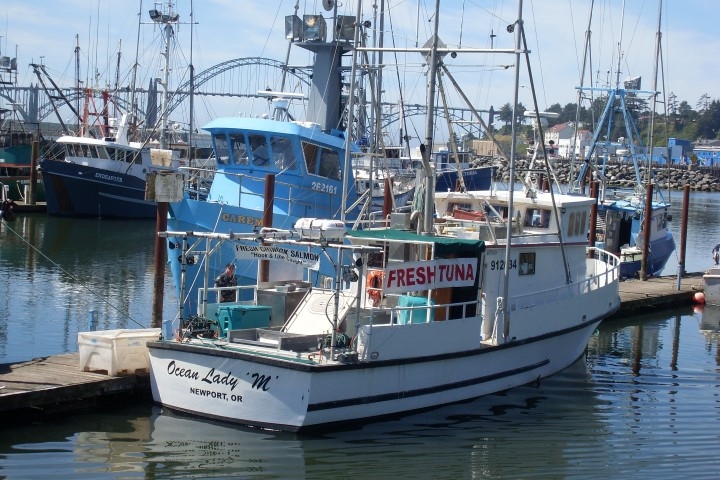
The information on this page is intended for educational purposes only and is subject to change. Fishermen should contact the agencies directly to determine what is required for their particular situation.
Oregon State and Local Regulations, Permits and Licenses for Seafood Alternative Markets
Fishermen considering selling their catch directly from their boat, a roadside stand/market, or other alternative market, will need to follow regulations and guidelines and obtain specific licenses, registrations, permits, and certificates from several state and local agencies in addition to the licenses and permits required to fish commercially. Here we provide selected general information, by agency, that highlights some of these requirements and associated fees (as of 2015).
Fishermen should contact the agencies below to determine current requirements and fees and to ensure they are in compliance. When doing so, fishermen will need to be able to describe the seafood products they will be selling -- species, product form (e.g., whole, filet, smoked) -- and the type of alternative market(s) they will use.
Oregon Department of Fish and Wildlife (ODFW)
Commercial Fisheries Division(link is external)
Contact: Commercial Fisheries Licensing Staff(link is external)
Telephone: 503.947.6101
Email: odfw.info@state.or.us(link sends e-mail)
Information Sources: Licenses and Fees(link is external); Definitions and specifications
The following provides selected information about three types of ODFW commercial fish business licenses that may be appropriate for fishermen selling their catch through seafood alternative markets. Fishermen should check the information sources above and contact ODFW directly for up-to-date information and to determine the requirements that apply to their specific situation.
Oregon Department of Agriculture (ODA)
The ODA oversees the safe and legal handling and distribution of food products in Oregon State. The following provides information about three programs within the ODA that may pertain to fishermen selling their catch through seafood alternative markets. Fishermen should check the information sources within each program and contact ODA directly for up-to-date information and to determine the requirements that apply to their specific situation.
Weights and Measures Program(link is external)
Contact: Main Office Staff or Local Inspector
Phone: 503.986.4670 (main office) or see staff contact list(link is external) by city
Email: msd-clerical@oda.state.or.us(link sends e-mail)
Information Sources: License a Scale(link is external); Operating a Scale(link is external); Schedule of Licensing Fees(link is external)
Food Safety Program(link is external)
Contact: Food Safety Inspector (county contact list(link is external))
Phone: 503.986.4720, State Office; see list above for County-Based Offices
Email: None provided. Phone contact preferred.
Oregon Commodity Commissions(link is external)
Contact: Commodity Commission Oversight Program Manager
Phone: 503-872-6604
Email: info@oda.state.or.us(link sends e-mail)
Oregon Health Authority
Public Health Division Food Safety(link is external)
Contact: Local health inspector
Phone: 971.673.1222 State Office; County County List(link is external)
Email: health.webmaster@state.or.us(link sends e-mail)
Information Sources: Forms, Rules, and Guidelines(link is external)
County and city environmental health departments inspect and license food operations to ensure safe food handling practices. Required permits and fees vary amount counties and seafood alternative markets. The permits and certifications listed below, as well as others, may be required by a given environmental health department. Fishermen should contact their local environmental health department directly for up-to-date information and to determine the requirements that apply to their specific situation. For more information, contact the Department of Health in the county in which you will be operating your business (see county contact list above).
Local Authorities
Depending on the type of market and where it is located, additional documents may be required from local authorities. Below are a few examples of such requirements.
Adapted from Johnson et al. 2007. Appendix K: State and Local Regulations in Oregon. In: Fishermen’s Direct Marketing Manual. Pp. 78-79.